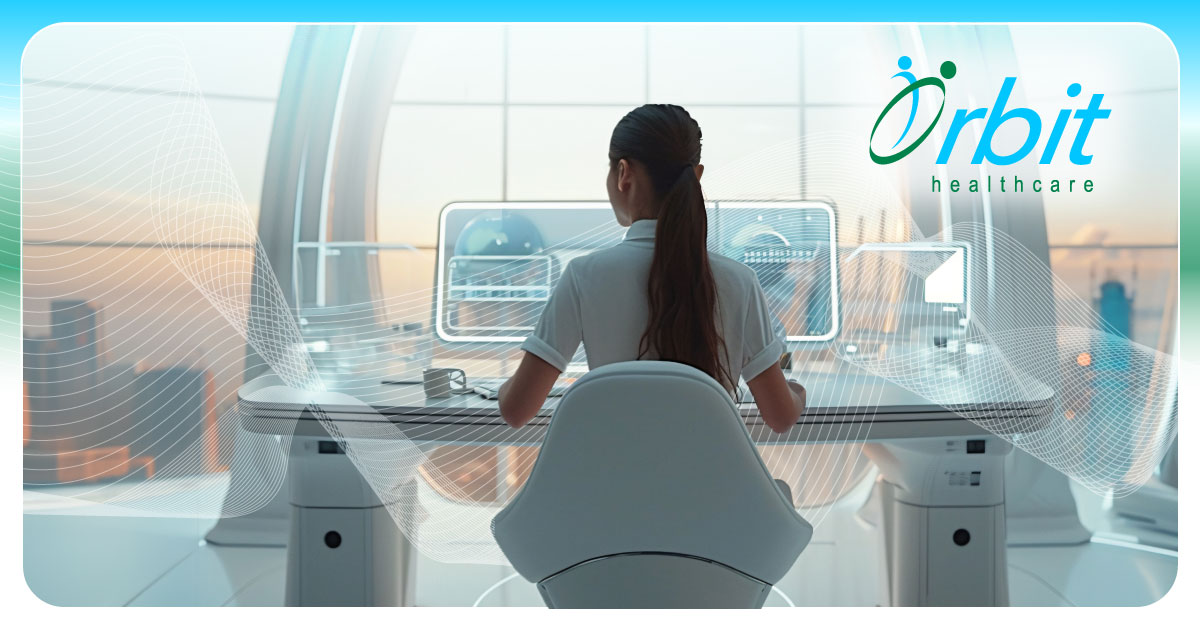In the medical industry, constant change is anything but uncommon. Research shows different results, favored procedures shift, and inpatient check-ins gradually change. What once might’ve been collecting on paper from a clipboard is now entered into a computer system and electronically managed. Now, the 2020’s have brought a new type of technology that is seeing much more use in the healthcare industry.
Artificial Intelligence (AI) has seen skyrocketing popularity in forms like ChatGPT or Gemini, which are primarily text-based language models. However, AI is capable of much more than that. A healthcare AI agent is an AI system or program that performs tasks on a human’s behalf. So, what is AI capable of?
One of the most common and tedious tasks is insurance verification. Regardless of what industry or type of procedure a client needs, you will need to verify their insurance information. With AI, you can scan an ID card, referral form, or any other document containing the patient’s insurance information. It will extract the data to your system and begin the next step of enhanced benefit verification. In this step, an AI will verify a patient’s benefits with real time data. This data can either be accessed via the insurance company’s portal, or can be confirmed by having the AI voice call a company representative. This cuts down the most crucial and often most tedious step of patient intake, ensuring that the patient experience gets off of the right foot.
However, this AI even has a more active role to play in reducing administrative burden amongst your healthcare workers. It has the ability to request prior authorization for procedures, when necessary, without requiring the approval of a healthcare worker. Similarly, it also has the ability to process inbound referrals, slashing the time from one business day to under a minute.
However, not all AI are the same. Picking the right type of AI agent is just as important as whatever features an AI may have. Most of the popular AI models are simply incompatible with work in the private healthcare industry. These AI agents are ‘public-facing’ models, meaning they can only access publicly available data. This means healthcare records, prescriptions, and other documents imperative to a patient’s wellbeing are simply inaccessible to these types of AI.
Importantly, the way public-facing models store data is also a cause for concern. Because they are trained on publicly available data, there is little thought given to protecting privileged data when these models were being created and trained. This can mean that the way they store data is sometimes insecure, and often not compliant with HIPAA standards.
Despite the utility, applications with agentic AI only account for a fraction of a percent of all healthcare enterprise software. However, that percentage is forecasted to shoot up to 33% by 2028. Similarly, as many as 7 in every 10 physicians believe AI will become indispensable to healthcare in just the next 5 years. Fortunately, proprietors of this technology have already begun to help bridge the gap between supply and demand.
Companies like Orbit Healthcare offer these agentic AI that were coded to be compatible with the healthcare industry. This means these types of AI are HIPAA compliant, can easily analyze patient data, and properly safeguard any data they access. In addition, these AI’s excel at administrative tasks, which gives your healthcare workers more time to make patient intake smooth and to improve the overall patient experience. Numerically, this means that an average of 50 hours is saved per week and between 40% and 70% of costs are slashed depending on the healthcare business. All this saved productivity means higher overall patient satisfaction and a 20% increase in overall revenue.
Whether you’re a provider group, health system, or offer a different type of healthcare service, AI agents can improve some aspects of your healthcare company. To get happier patients and a more productive workforce, implementing AI is the best step for your business.

Source: Orbit Healthcare




